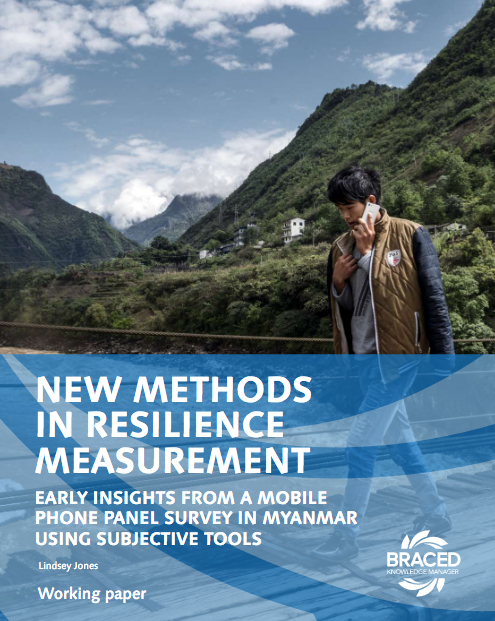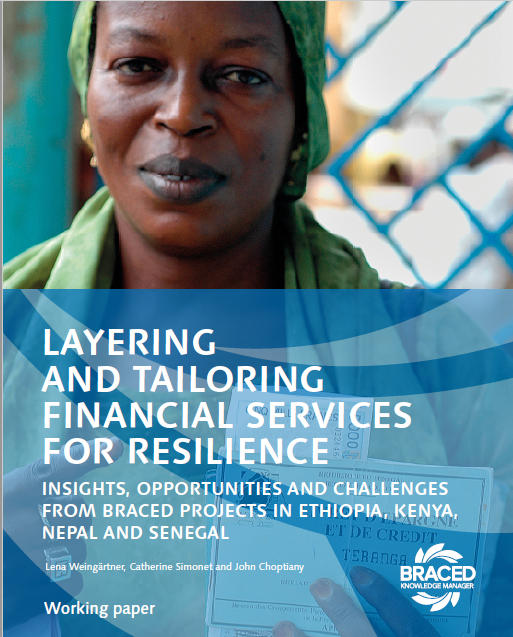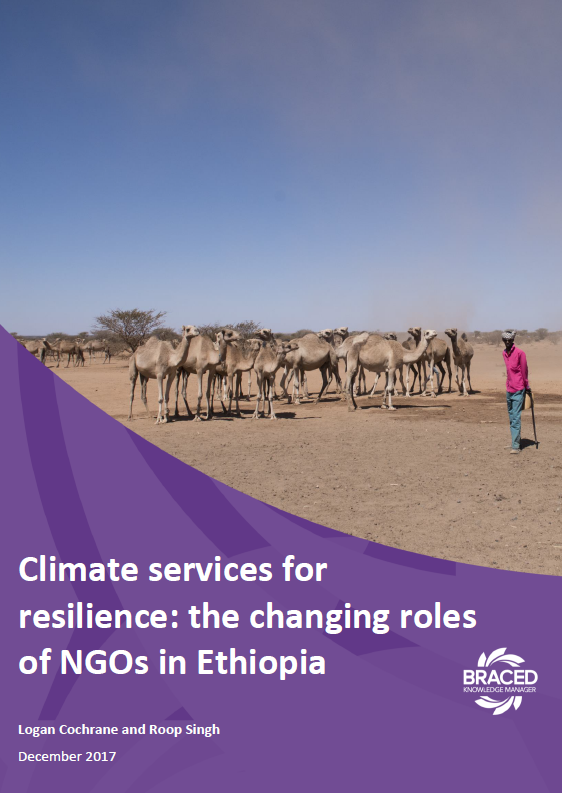Resources
74 Found

New methods in resilience measurement
Document Type: Projects and Case StudiesDespite growing support for resilience-building initiatives within the international development community, efforts to measure resilience face a number of critical challenges. Evaluators have
difficulties not only in defining resilience but also in choosing the right indicators and finding ways of recognising the many intangible elements that contribute to a household’s resilience (such as
power, social networks and norms). New methods and tools are desperately needed to help address some of these shortfalls.

Lessons from the delivery of climate resilience programming in fragile and conflict-affected contexts
Document Type: Projects and Case StudiesThis compendium should be read in combination with the report ‘Delivering climate resilience programmes in fragile and conflict-affected areas’ (Neaverson et al., 2019). The case studies
in this compendium form part of a wider research project undertaken by the Building Resilience and Adaptation to Climate Extremes and Disasters (BRACED) Knowledge Manager
to explore how climate resilience projects and programmes can be designed, set up and managed to be resilient themselves for more effective delivery in fragile and conflict-affected contexts
(FCAC). The research project specifically focuses on operational considerations rather than more technical, programmatic ones.

Layering and tailoring financial services for resilience
Document Type: Projects and Case StudiesThe role of financial services in supporting resilience and adaptation to climate change is frequently discussed in policy and practitioner forums and increasingly assessed in research
studies. Financial services, both formal and informal, have been recognised as crucial for managing livelihood risks, preparing for and recovering from shocks, and increasing productive investments; thus reducing poverty and promoting economic development. At the same time the importance of considering medium and long term climate impacts in financial service interventions and the potential of some products, such as microcredit or agricultural insurance, to increase vulnerabilities by introducing debt burdens or incentivising maladaptation
in farming practices have been highlighted.

Climate services for resilience: the changing roles of NGOs in Ethiopia
Document Type: Projects and Case StudiesThe current and expected impacts of climate change are influencing government policies and services as well as donor and NGO activities. The shifts have been influenced by the ‘resilience agenda’ whereby actors seek to reduce vulnerability and strengthen resilience as a means to mitigate climatic challenges. A focus on resilience has required a much more diverse engagement, as the interrelationships between climate, health, poverty and wellbeing are increasingly recognized. This has made programming more complex. Within these changes, climate information services have received greater emphasis.

Climate services for resilience: the changing roles of NGOs in Burkina Faso
Document Type: Projects and Case StudiesThe growing focus on resilience in the context of climate change and international development has led to a push for more integrated approaches to planning for and responding to climate change, managing disaster risk, and addressing broader development challenges. Included in this move is an increased emphasis on the use of climate and weather information in decision-making. Non-Governmental Organisations (NGOs) across Africa and Asia have responded accordingly, and are increasingly acting as brokers, and sometimes producers, of climate information services as part of their “resilience building” programmes (Jones, Harvey & Godfrey-Wood, 2016). To enrich our understanding of these trends, this study traces the emergence of climate services as a core element of resilience programming and explores how development NGOs are contributing to the climate services system in Burkina Faso.
